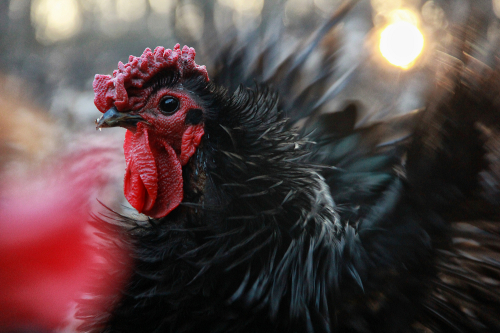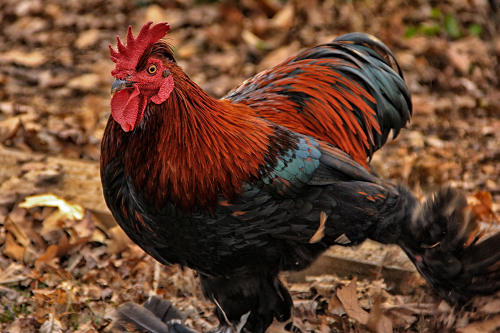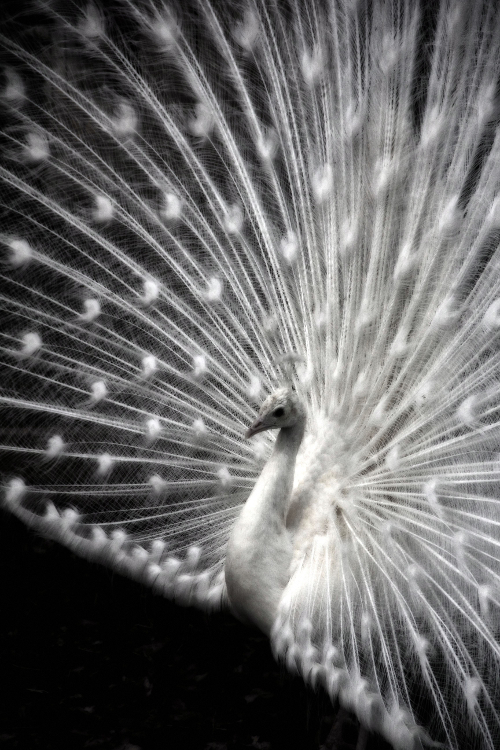Does Incubation Temperature Influence the Sex of a Chick?
I am a blogger for Backyard Poultry Magazine and this is an article of mine that they posted on January 14, 2014
It’s mid winter. We just survived what the weather experts called a polar vortex. We endured temperature lows scarcely seen in more than 30 years. So why would anyone be considering hatching chicks now? Well, for anyone involved in 4-H, now is the time to do it. In order to have a mature bird with fully developed plumage in time for the fairs this year, the incubating has begun.
At one time or another, we have all heard that the temperature during incubation can affect the sex of a chick. I can even remember my grandmother telling me when I was a child that chicks hatched in the early spring were more likely to be roosters. So we collected the eggs and didn’t let the hens set until the late spring temperatures had stabilized. Of course the utility of hens on a farm was greater than roos, so it sounded reasonable to me. I have to admit that over the years I have wondered if there was some truth to that. After all, science doesn’t have all of the answers and I was always sure that my grandmother possessed a wisdom that was unrivaled.
So what are the facts? There are two distinctly different sex-determining mechanisms. Genotypic (GSD) and Temperature-dependent (TSD). In the Genotypic group, where mammals and birds fall, sex chromosomes are the predominant factor in determining the sex of the offspring. In Temperature-dependent, where many reptiles fall however, there is a critical period in the development of the embryo where the temperature determines whether the egg develops into a female or a male.
So that pretty much says it, right? Birds have their sex determined by the chromosomes that they receive from their parents. Well, then why are there still studies being done to see if incubation temperatures have an impact on the male-to-female hatch rate? Think of the financial implications for the commercial poultry industry; if they had some control over hatch outcome, profit percentages could change dramatically.
An interesting point that came out of one study done with broilers was that incubation temperature did not appear to have any impact on the sex of the chick. However, lower incubation temperatures seemed to produce a higher rate of pre-hatch mortality for female chicks and higher incubation temperatures seemed to produce a higher rate of pre-hatch mortality for male chicks. So can we conclude that the reason Grandma thought that there was a correlation between roosters and an early spring hatch was that the females just never made it out of the shells? Well, not quite…
There is another wrinkle. Chicken embryos, like human embryos, possess what is called a bipotential gonad. It is exactly what it sounds like. Remember from high school health class that a gonad is the organ responsible for producing eggs or sperm. Bipotential means that as the embryo develops, this structure has the potential to become either a pair of testes or an ovary. (That’s not a typo, female chicks are only born with their left ovary functional). So even though chickens are a member of the GSD group of sex determination, they all have the potential to develop into either a male or a female at that stage of embryonic development. Little is known about the genes of chicken gonadal differentiation and last I knew the sex determination gene had not been identified.
So, if we don’t have a clear understanding of what makes the embryo of a chicken develop into a male or female, could grandma have been right? Could incubation temperature have an indirect bearing on the sex of the chick? Well, one thing is for sure, that for the small scale hatches of backyard poultry enthusiasts, attempting to skew the results of a hatch can have very detrimental implications such as decreased hatch rates, high chick mortality and high chick morbidity (birth defects). So, my advice is if you are going to hatch chicks, be happy with what you get, love them for their unique characteristics and Don’t Mess With Mother Nature!


